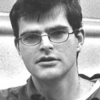Scott Stossel

Scott Stossel
Scott Hanford Stossel is an American journalist and editor. He is the editor of The Atlantic magazine, and previously served as executive editor of The American Prospect magazine. He is a graduate of Harvard University. He is the son of Anne Hanford and Dr. Thomas P. Stossel, the brother of cartoonist Sage Stossel, and the nephew of TV journalist John Stossel. In 2014, Stossel was awarded the Erikson Institute Prize for Excellence in Mental Health Media...
NationalityAmerican
ProfessionJournalist
Date of Birth7 August 1969
CountryUnited States of America
I've always been interested in intellectual history and in psychology, and anxiety is obviously something that's been a big part of my life.
The fear of vomiting, which for me is one of the most original and most acute of my fears, is actually fairly common. Emetophobia, it's called, and by some estimates, it's the fifth most common specific phobia.
Even as economic and political freedoms have advanced enormously and generated huge benefits for humanity, they've also created a great deal of anxiety because every time you have to make a choice, there's anxiety about making the wrong one.
Even though my mom herself was anxious, I think she didn't know how to deal with it in her kid, and my dad just had no conception of what this was about, and sort of didn't even want to acknowledge it.
I had no trouble with strangers finding out about my anxiety. It was my friends and colleagues I was concerned about.
As recently as 1979, neither panic attacks nor panic disorder officially existed.
I wanted to put a human face on anxiety disorders. I thought people who suffer from anxiety might recognize themselves and gain some comfort from my story and for those who don't suffer from anxiety disorders gain some understanding.
An astonishing portion of my life is built around trying to evade vomiting and preparing for the eventuality that I might.
My parents were not perfect, but no one's parents are. As childhoods go, mine was pretty comfortable and good in a lot of ways, and yet I still ended up with anxiety.
During first grade, I spent nearly every afternoon for months in the school nurse's office, sick with psychosomatic headaches, begging to go home; by third grade, stomachaches had replaced the headaches, but my daily trudge to the infirmary remained the same.
Barbra Streisand developed overwhelming performance anxiety at the height of her career; for 27 years she refused to perform for the general public, appearing live only in private clubs and at charity events, where she presumably believed the pressure on her was less intense.
Carly Simon abandoned the stage for seven years after collapsing from nerves before a concert in Pittsburgh in 1981. When she resumed performing, she would sometimes ask members of her band to spank her before she went onstage, to distract her from her anxiety.
To grapple with and understand anxiety is, in some sense, to grapple with and understand the human condition.
There's a book that's critical to understanding anxiety, a 17th-century book, 'The Anatomy of Melancholy,' by Robert Burton. I wanted to write something like that.